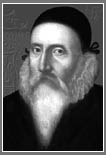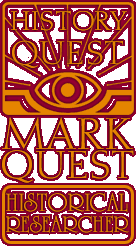
|
 |
John
Dee:
Any brief summary of such an incredible individual is unforgivable,
I will be brief and beg your forgiveness. |
It is known that he:
1. Was educated at,
Chantry School at Chelmsford in Essex, from 1537 to 1542.
St. John's College, Cambridge, 1542-1546; B.A., Fellow of Trinity
upon its foundation in 1546; M.A., 1548. Studied at Louvain University,
1548-1551, with Gemma Frisius and Mercator.
2. Was offered a professorship at the University of Paris in
1551, and in 1554 a position as lecturer on mathematics at Oxford.
He declined both positions.
3. Was under the patronage of the Duchess of Northumberland
and her husband during 1551-5 for his research. Dee was tutor to the
Northumberland children, including Robert Dudley, the future Earl
of Leicester. Leicester made use of his scientific knowledge.
4. Translated Euclid and wrote the famous Mathematical Preface.
5. Developed the instrumentation to apply Euclidean geometry to
navigation and was acknowledged by sixteenth century navigators to
be without equal in this revolutionary field. He was a consulted on
navigation by the Muscovy Company for approximately 30 years from
about 1550 to 1580. Dee's influence spread to the Netherlands where
it contributed to Dutch cartography in its so-called golden age.
|
6. Was uniquely aware of Britain's potential prowess as a global
maritime power, developing a basic plan for The Royal Navy and adding
the word Britannia to the English language.
7. Was acknowledged as having the most extensive library in
England, probably all of Europe, numbering well over four thousand
books, including unrivaled and detailed works on alchemy; hermetism,
cabbalism, becoming an adept in the esoteric and occult lore.
8. Through Robert Dudley advised Queen Elizabeth on the most astrologically
suitable date for her coronation and frequently cast her horoscope;
she regarded him as her personal astrologer and philosopher.
9. Was commissioned by Elizabeth to establish a legal justification
for colonizing North America. His researches lead him to Owen Madoc,
a Welsh Prince and ancestor of the Tudors, who took a group of followers
to New England around the year 1170 so establishing the first colony.
They reputedly joined an Indian tribe adopting a nomadic existence,
but with little or no historical verification it has come to be classed
as legend.
10. Acquired and sold ( to the Holy Roman Emperor - Rudolph
II - "for a lot of gold" ) The Voynich Manuscript,
the most mysterious of ciphers. It has yet to be deciphered, described
as "the Everest of cipher studies". It now resides at
Yale in the Beineke Library.
11. Was consulted by James Burbage regarding the design of
the first theater.
12. Was identified with Shakespear's literary characters, King
Lear and Prospero. |
|
This publication
intends to raise above the known event horizon into the light of
a new dawning amazing and unimagined aspects of at least one historical
event.
Every Court in sixteenth
century Europe employed astrologers and alchemists, then regarded
as the scientists of the time. The Queen and Burleigh were as determined
as Dee that he should speedily discover the ever-elusive "Great
Secret" of transmutation. Today's equivalent would probably be
Nuclear Fusion.
Dee had for some time carried the Queen's passport for himself and
several servants, obtaining permits through foreign ambassadors in
London to travel freely through various countries.
He regarded himself as Her Majesty's eyes and often told her so. His
own symbol and favored number was 7 and so when sending highly confidential
papers and correspondence to her, he would always mark it with his
personal cypher being two zeros for her eyes ( himself ) protected
by and undercover of his own number 7. Heptarchic values being the
mathematical focal point for many of his esoteric enquiries.
 |
Ian
Fleming borrowed Dee's cypher and made it is own! thus the
famous titles from the James Bond series, such as "On Her
Majesty's Secret Service" and "For your eyes only"
could just as easily relate to events of over 400 years ago. |
| The
official signature of John Dee in all communications to the
Crown |
|
All through Spring and Summer of 1581 Dee experienced
psychic phenomenon and tried continually to find once more the medium
Barnabas Saul. The first real seance we know of that Dee records,
"Actio Saulina," took place on December 21, 1581. The skryer was bidden
to look into the "great crystalline globe," and a message was transmitted
by the angel Annael.
During his search to find the relationship between the 12th. century
Welsh Prince Owen Madoc and the Tudor Princes, Dee had uncovered several
old Celtic myths and legends. These events took place during the early
part 1576. He had sought out a medium and finally tried one named
Barnabas Saul. Saul was eventually visited by "a spiritual creature."
who spoke first of "Albion's ancient treasure revealed in a sacred
scripture" and of "the holy man's unspoken vision"-
and finally claimed kinship to Prince Owen having been in his household
prior to the Prince's great journey.
The spiritual creature spoke many times through Saul, advising Dee
on the possible whereabouts of two sacred wooden tablets and how they
might be understood, but towards the Summer of 1576 the mediums strength
was waning, due mainly to the nightmares he was prone to experience.
After a terrible dream on June 19th. 1576 Saul packed his meager belongings
and left the comfortable rooms Dee had furnished him with in the house
at Mortlake and refused to return.
These early notes indicate that his first experiences with mediums
took place nearly six years earlier than had been originally thought,
and Dee having used Saul in 1576 sought him out again and in 1581
continued with this extraordinary research.
Dee's notes regarding all of these, otherwise
unrecorded, events were for the Queen's eyes only and so kept separate
from his own diaries of that period, they form the basis of my continuing
research and were the lost contents of the cylinder found nearly 200
hundred years ago by Lizzie Taylor. I wish to thank the Taylor family
for their, encouragement and ongoing support with this intriguing
research.
His work and friendship with Davis, Hawkins, Frobisher, Drake and
other great sea-captains, drew his attention to the sea power of "this
blessed isle of Albion." He had spent most of the previous year (1576)
in writing a series of volumes on perfecting the "Art of Navigation."
During the early months of 1577 Drake spent many hours with Dee in
close and secret conversation. The two men also often visited the
Queen and jointly kept her informed of the outcome of their meetings.
That October (1577) the Queen and her Court, indeed all of Europe
were thrown into a panic by the appearance in the heavens of a Comet.
Some were calling it the "warriors sword" others called
it the "sword of St.Michael" or "the angel star"
a sign that angels would defend "this blessed isle of Albion".
War with Spain was predicted, plague and pestilence was also high
on the list of doom and disaster. What the "blazing star," as most
people called it, forebode, no one at Court could tell; Dee was summoned
without delay to explain the phenomenon.
Dee married his second wife, *Jane Fromond age 22, of East
Cheam, Surrey on February 5th. 1578. It was no easy task to be the
wife of such a brilliant and erudite mathematician nearly thirty years
her senior, but to the end of her days Jane Dee always proved herself
to be a true and loving wife and a most careful and devoted mother
to their eight children.
*Note: Dee's mother's name was also Jane
The last written entry in his diary is on December 19th. 1608 and
is almost illegible. It is in Dee's own hand and appears to read "tonitrum
a Corrfe."
On which of December's few remaining days, Dee passed on, to join
his friends and loved ones (and perhaps even those angels)
so close to him during life, we do not know. Or even on what precise
date he was buried in the chancel of the church standing so close
to his house at Mortlake which had been his home for over thirty years.
The parish registers for 1608 and four other years are missing, and
the stone which is known to have once marked his grave has long since
disappeared. |
|








